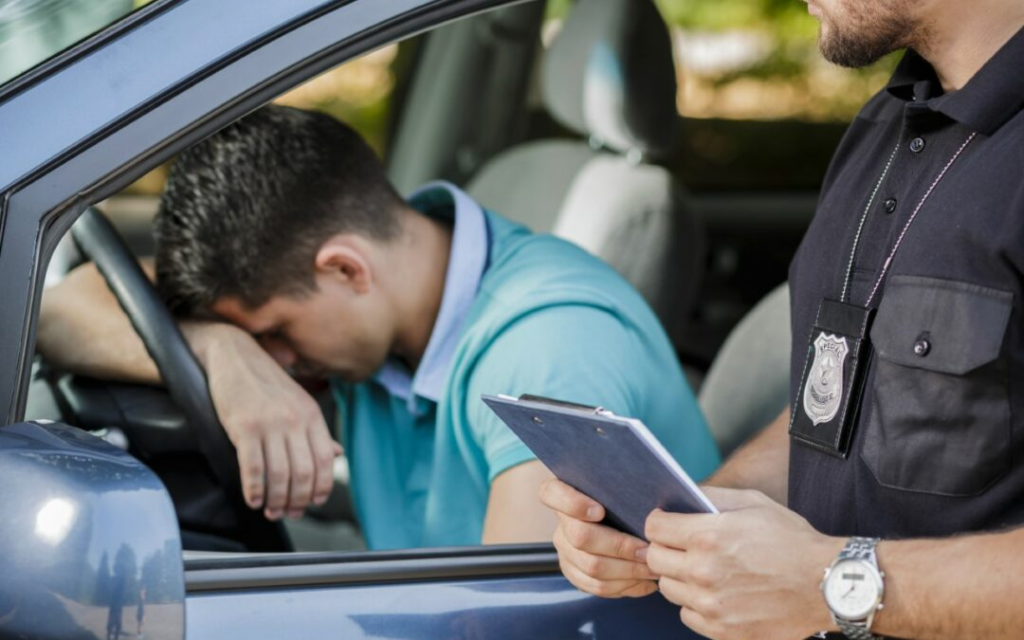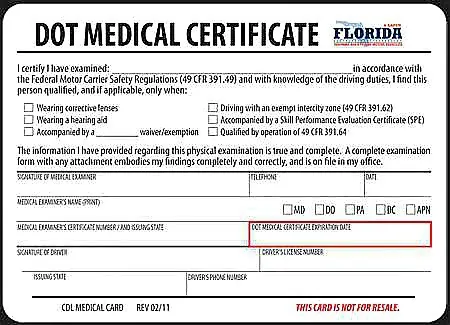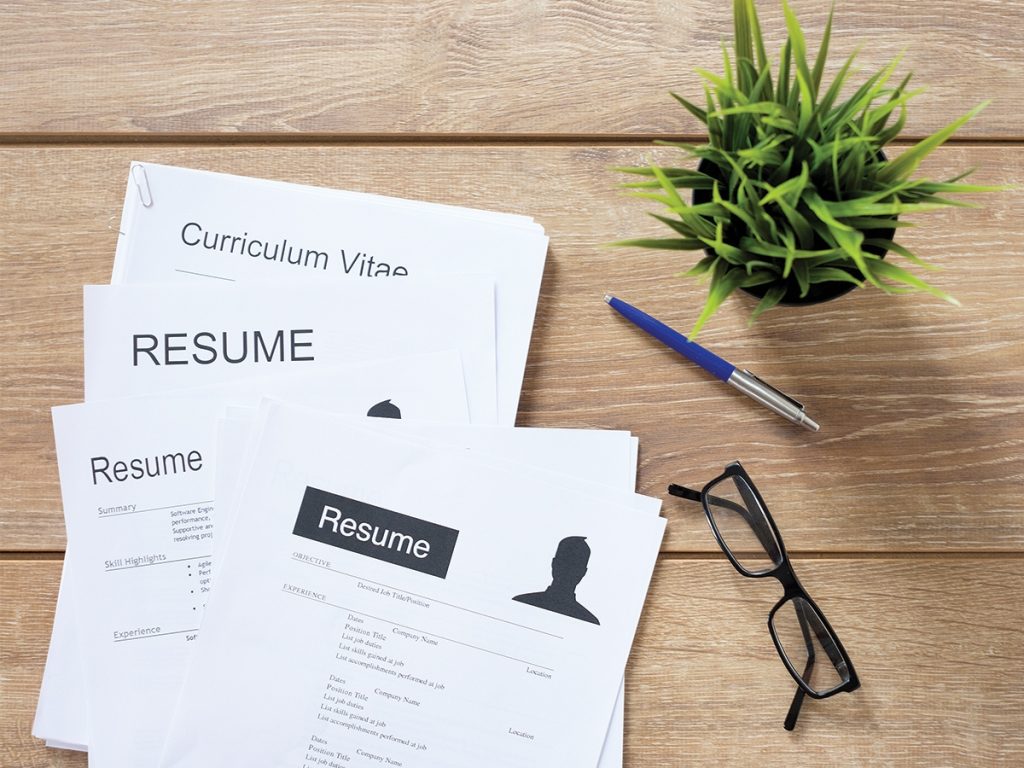Are you looking for the answer for “What disqualifies you from getting a CDL in New York?”. You are in the right place! Everything from specific driving violations, and legal issues to medical conditions, even requirements over drug testing, have clear factors that can disqualify you. Therefore, getting a CDL in New York opens up many great opportunities within the trucking industry, but not everyone is qualified. Knowing these roadblocks in advance can save you time, money, and disappointment. No matter if you’re just starting your CDL journey or addressing concerns about eligibility, it’s important to understand the rules first, so you’re ready to hit the road with confidence.
What disqualifies you from getting a CDL in New York?
The most common disqualification reasons are grave traffic offenses, certain criminal convictions, medical conditions, along with failed results of drug/alcohol tests. Knowing what might disqualify you helps you avoid setbacks on your journey to obtaining a license.

Alcohol, leaving the scene of an accident, and commission of a felony
There are absolute prohibitions on the use of alcohol, irresponsible driving, and criminal conduct in the operation of a CMV. Consequences for violating these prohibitions are severe and may involve the loss of your CLP or CDL. Here’s what you must be aware of:
Alcohol and driving restrictions:
- It is a criminal offense to drive a CMV with a BAC of 0.04% or higher.
- If you operate a CMV you are considered to have given your consent to alcohol testing.
- Any measurable amount of alcohol less than 0.04% requires a 24 consecutive-hour out-of-service directive.
Loss of CDL/CLP for first offenses:
You will lose your CDL or CLP for at least one year if convicted of any of the following offenses:
- Operating a CMV with a BAC of 0.04% or higher.
- Operating any vehicle under the influence of alcohol or controlled substances.
- Refusing to submit to blood alcohol testing.
- Leaving the scene of an accident without proper reporting.
- Using any vehicle in the commission of a felony.
- Operating a CMV when your CDL or CLP is suspended, revoked, or canceled for previous violations.
- Vehicular manslaughter, or criminally negligent homicide involving the use of a CMV.
Enhanced penalties:
- If the violation occurs in a CMV hauling hazardous materials that require placarding, your CDL/CLP will be disqualified for at least three years.
- A second conviction of any of the above offenses is a lifetime disqualified from holding a CDL or CLP.
Controlled substance-related felonies:
- Operating a CMV and committing a felony involving any of the controlled substances listed will result in the lifetime loss of your CDL or CLP.
Serious traffic violations

Severe penalties for serious traffic violations in New York may be imposed against commercial drivers. These traffic violations will not only endanger you and others but also may result in the suspension or revocation of your CLP or CDL. Some of the most serious traffic violations are listed as follows:
- Excessive speeding is 15 mph or more above the posted limit.
- Reckless driving.
- Improper or erratic lane changes.
- Following another vehicle too closely.
- Traffic offenses committed in a CMV result in fatal accidents.
- Operating a CMV without having first obtained a CLP or CDL.
- Operating a CMV without a valid CLP or CDL in your possession.
- Using a handheld cell phone or texting while operating a CMV.
If you commit serious traffic violations involving a CMV, you will be disqualified from having a CLP or CDL for the following periods:
- 60-day suspension for accumulation of two serious traffic violations in a three-year period.
- 120-day suspension for accumulating three serious traffic violations in three years.
These penalties make it very significant that you should have safe and lawful driving practices; even just a few serious violations have long-lasting consequences on your driving career.
Violation of out-of-service orders
If you or your commercial vehicle fail an inspection for safety, a federal or state inspector may put you out of service. You are not allowed to operate the vehicle until it is safe. The penalties for operating a commercial motor vehicle in violation of an out-of-service order are severe and could result in the loss of your CLP or CDL. The penalties for violating an out-of-service order are as follows:
- First offense: You will be disqualified for at least 90 days from having a CLP or CDL.
- Second offense (within a ten-year period): You will be disqualified from having a CLP or CDL for at least one year.
- Third offense (within ten years): Your CLP or CDL is disqualified for at least three years.
These penalties tend to signify how seriously important it is that your vehicle is always in safe working condition. Operating your vehicle for which an out-of-service order has been issued poses a safety hazard and can devastate your ability to continue working as a commercial driver.
Railroad-highway grade crossing violations
Violations at railroad-highway grade crossings are serious offenses for CDL holders because they result in the most dangerous of all highway accidents. The following are violations of federal, state, or local laws or regulations at a railroad-highway grade crossing while operating a commercial motor vehicle:
- Failure to stop, for those not always required to stop, before reaching the crossing if the tracks are not clear.
- Failure to reduce speed and look for an oncoming train if not required to always stop.
- Failure to stop before driving onto the crossing if required to always stop.
- Failure to have adequate clearance for a complete passage of the crossing without stopping.
- Failure to comply with a traffic control device or with the directions of a law enforcement officer at the crossing.
- Failure of negotiation of a crossing due to inadequate undercarriage clearance.
If you are convicted of any of the above violations, you will lose your CLP or CDL for the following periods:
- First violation: 60-day suspension.
- Second violation within three years: 120-day suspension.
- Third violation within a three-year period: 1 year suspension.
These penalties demonstrate that railroad tracks are to be crossed with a lot of caution and follow all procedures for the safety of persons using the road.
Hazardous materials endorsement background check and disqualifications
To obtain a Hazardous material endorsement on your CDL, you are required to fingerprint and undergo a background check to help ensure that hazardous materials carriers do not pose a security risk. If the Transportation Security Administration (TSA) determines you are a security threat or do not meet the regulations you may be ineligible to hold a hazardous materials endorsement or have your existing endorsement denied or revoked. You could be disqualified if:
- Age not being a lawful permanent resident of the United States.
- Renouncing U.S. citizenship.
- Being wanted or under indictment for specified felonies.
- Conviction for specified felonies in military or civilian court.
- Adjudication of not having mental capacity or commitment to a mental institution.
- Being determined by the TSA as a security threat.
These are regulations that mean only qualified handlers of hazardous materials are allowed on the highway to ensure safety and security on the highway.
Traffic violations in your personal vehicle
Federal and state regulations may prohibit you from driving a commercial motor vehicle if you are convicted of certain traffic offenses in your personal vehicle. You will be disqualified from having a CLP or CDL for the following offenses:
- Leaving the scene of an accident.
- Alcohol and/or drug violations.
- Felonies involving a motor vehicle.
Also, if your privilege to drive a personal vehicle is revoked, canceled or suspended due to traffic offenses other than parking offenses, your commercial driving privilege will also be revoked. Some of the specific penalties are:
- If your personal vehicle privileges are revoked because of alcohol, controlled substances, or felony infractions, you will be disqualified from having a CLP or CDL for a period of one year.
- If you are found guilty of a second such infraction, whether in a personal car or a commercial motor vehicle, you will be permanently disqualified from possessing a CLP or CDL.

Finally, you will not be eligible for a “hardship” license to operate a CMV if your personal vehicle license is revoked, canceled, or suspended. These regulations bring into sharp focus the need for a clean driving record in your personal and commercial driving activities.
FAQs
1. What felonies disqualify you from getting a CDL in New York?
Certain felonies prohibit you from possessing a Commercial Driver’s License in New York. These are as follows:
- Felonies involving the use of a motor vehicle, including but not limited to vehicular manslaughter or criminally negligent homicide.
- Controlled substance felonies involving the use of a commercial vehicle in the commission of a felony involving drugs.
- Felony convictions of serious driving crimes, such as leaving the scene of an accident or operating a vehicle under the influence of alcohol or drugs.
- Convictions of felonies such as these could result in the permanent disqualification or suspension of your CDL eligibility, depending on the nature and severity of the crime committed.
2. Can I get a CDL in New York with a DUI?
No. A conviction of DUI will prohibit you from getting a CDL in the state of New York. If you are convicted of driving any vehicle under the influence, you may lose your CDL or CLP for at least one year. If you were operating a CMV with a BAC of 0.04% or higher, the period of ineligibility to operate a CMV will be longer. Additionally, a second DUI conviction can result in lifetime disqualification to hold a CDL.
3. Can a felon get a CDL license in New York?
It depends. A felon can get a CDL in New York but depends on the kind of felony he was convicted of. Motor vehicle felonies that would cause you to be disqualified include motor vehicle felonies, drug-related felonies, and violent felonies. The felonies of non-violent offenses or ones not related to driving or controlled substances don’t automatically disqualify drivers. This may involve re-checking some of the legal restrictions in this regard and confirming some details from the New York DMV about eligibility requirements.
Final thoughts
In short, this guide helps to understand what disqualifies you from getting a CDL in New York so that any driver wanting to pursue a commercial driving career may steer away from setbacks. Felony convictions, DUIs, traffic violations, related alcohol or drug violations, or reckless driving may be reasons for disqualification; thus, it is vital to keep your records clean. If you are not sure about New York CDL qualifications or need more advice and counseling, approach the New York DMV for your needs to ensure a successful application for a CDL. Ready to shift gears? Start your path to getting a CDL today!



